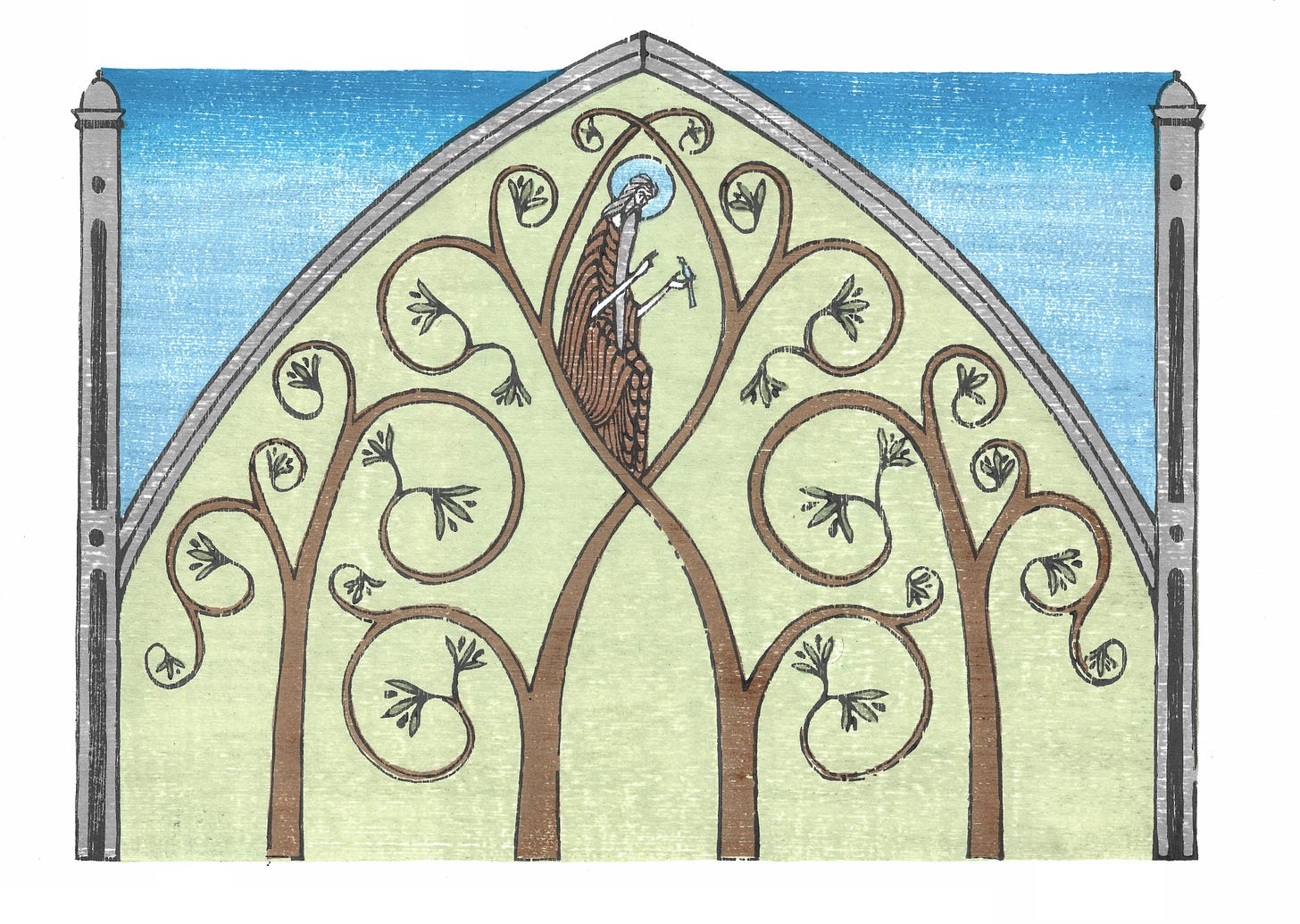St David the Dendrite
Greece. Fifth - Sixth Centuries
The rain, the rain. It is steady, but it is light. The rain is not the worst. The worst is the cold, which severs the fingers, severs the toes from the body, which builds the uncontrollable shiver that penetrates the heart. The cold is a beast which tears at the skin. But is it the worst? Or is the worst the wind, which bends the trunk like the planks of a galleon, beats at it as if the sea were straining in from all sides, as if the world itself were rolling beneath? Yes, the wind is the worst, I think. The heat, the cold, the rain: at least they do not make me sick.
All things are to the glory of God. I thank Him for the wind especially.
At night, the tree seems to speak. Even on the stillest of nights, when the moon is a blade in the midnight meadow, there are groans and sighs in her trunk. She moves. I have taken to believing that the tree is womanlike. She bears me up and protects me, as she bears almonds in the late summer, as she is beautifully adorned with pale blossoms in the spring. The tree is home to the birds who feed here and sleep often with me in these branches at night. From her crown can be seen a view newly entire of the world below, from which the Theotokos bore Him who spoke the birds and the branches and all of his children into life.
I loved and I hated the tree, at the beginning. Now, nearly three years have passed since my feet touched the earth. Could I walk again if I descended now? Sometimes it seems it would be easier to fly, with the birds who alight here with me, and often now on me. With the birds who bring me bread and sing to me when the sun approaches. One day I will fly home.
Keep reading with a 7-day free trial
Subscribe to The Abbey of Misrule to keep reading this post and get 7 days of free access to the full post archives.





